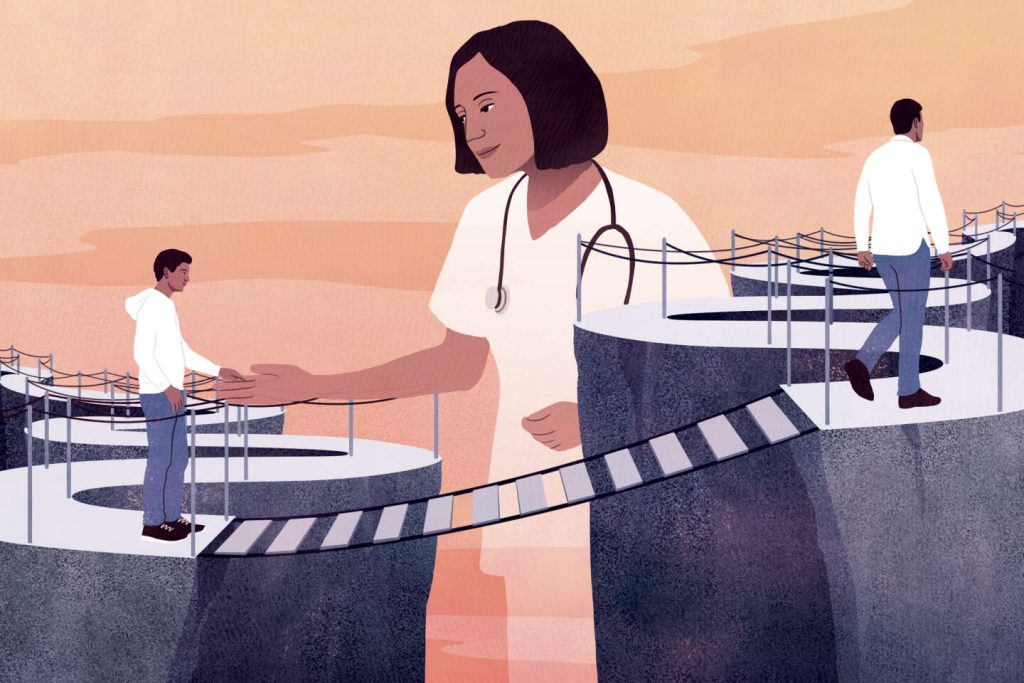In the story “Yasmine Gateau,” Inês and Jordi, both 16 years old, are participating in a workshop at the Hospital Femme-Mère-Enfant (HFME) of the Hospices civils de Lyon (HCL). Both Inês, a first-year student, and Jordi, a second-year student, share the experience of being affected by systemic lupus. This rare autoimmune disease affects approximately 50 people out of 100,000, with more than 25,000 patients in France. In systemic lupus, the immune system malfunctions and attacks the body’s own cells, producing excessive autoantibodies that can cause inflammatory reactions and damage to various tissues such as skin, joints, blood vessels, muscles, and blood cells, leading to visible and invisible disabilities.
Both Inês and Jordi are part of the Ariane program, led by HFME of HCL and the Nord-Ouest Hospital in Villefranche-sur-Saône, which aims to support the transition to adulthood for patients starting at age 12 to avoid interruptions in care. The Lyon project focuses on four groups of chronic childhood diseases: severe persistent asthma, bleeding disorders (such as hemophilia), chronic kidney diseases, and inflammatory rheumatic diseases. Some patients have been ill since birth, while others developed the condition during adolescence, but for most, the disease will continue into adulthood. In France, between 1.5 million and 3 million children are affected by chronic diseases such as cystic fibrosis, congenital heart disease, juvenile idiopathic arthritis, and pediatric cancers.
The denial of illness is a common issue facing children with chronic conditions. Many chronic diseases that begin in childhood are considered rare, except for a few common ones like type 1 diabetes, asthma, and allergies. The Ariane project, co-led by nurse coordinator Mélanie Romier, aims to provide support for these patients over a five-year period. Around 200 patients will be included at HFME and fifty at the Nord-Ouest Hospital. This initiative, funded at €850,000 for five years by the Auvergne-Rhône-Alpes regional health agency and the national health insurance, aims to demonstrate improvements in care quality and cost savings, potentially leading to the expansion of this specific adolescent care pathway nationwide.
Transitioning from pediatric to adult care can be a challenging process for patients and their families. It often marks the end of a long-standing relationship with the pediatric care team and can be perceived as a loss of support and familiarity. The uncertainty of this transition can create apprehension and anxiety. In a 2008 article, Swiss and Belgian doctors highlighted the emotional impact of this change on patients and families. The Ariane project seeks to address these concerns and provide a smoother transition for adolescents with chronic conditions, ultimately improving their overall care experience and outcomes.


